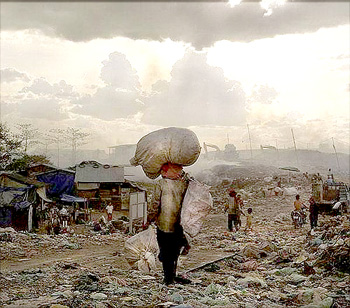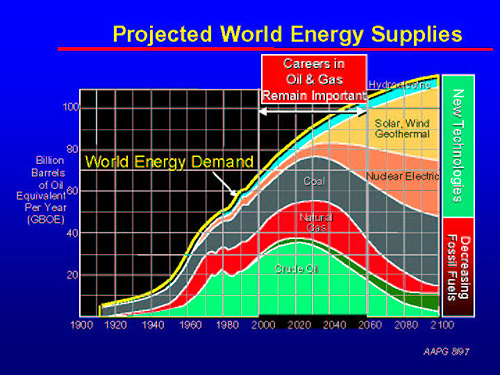Tradition
The fact that the oil industry is spending much money and using all available high technologies to explore for oil in unfavorable areas (like Polar, Caspian, Deep Sea etc.) might be interpreted as the industry's admission of the fact that ever less oil is found at other (easier to access, so called low hanging fruit) places. Otherwise, industry would look for that oil first.
As one can surmise in detail, ever more oil producing countries are reaching their peak of production in spite of very favourable economic conditions for example high prices of crude oil. The aggregate production peak of all countries outside of OPEC occurred somewhere around the year 2000.
The fact that the oil industry is spending much money and using all available high technologies to explore for oil in unfavorable areas (like Polar, Caspian, Deep Sea etc.) might be interpreted as the industry's admission of the fact that ever less oil is found at other (easier to access, so called low hanging fruit) places. Otherwise, industry would look for that oil first.
As one can surmise in detail, ever more oil producing countries are reaching their peak of production in spite of very favourable economic conditions for example high prices of crude oil. The aggregate production peak of all countries outside of OPEC occurred somewhere around the year 2000.
Our old energy ways can not be sustained if we are to meet the world's future needs responsibly. American leadership, innovation, and investment are needed to develop and deploy the next generation of energy solutions that will create new jobs, environmental turn-around, and economic growth.
This "drain to a drip of the spigot" is estimated to be only 40 years out.
The need to establish a foothold on renewable energy is now . . . today . . . yesterday really. Alternative fuels are no longer a conservative radical answer to liquid tree hugging. It has become a real alternative struggle to what's coming.
Mufi Hannemann, Mayor of Honolulu in quoting Abraham Lincoln:
You cannot escape the responsibility of tomorrow by evading it today.
EBB AND FLOW OF AVAILABLE RESOURCES TO
ENERGY VS DEMAND
 An ancient Chinese proverb states: "A picture is worth a thousand words."
An ancient Chinese proverb states: "A picture is worth a thousand words."
With the crossover point between supply (Earth's resources) and demand (Earth's societies) measured now in decades and no longer in millenniums, here is visual acuity:
